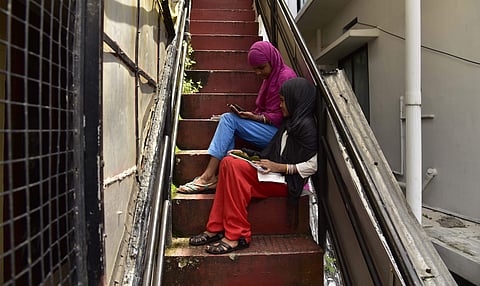

V Sivadasan, an MP from Kerala has written to Union Education Minister Ramesh Pokhriyal mentioning a recent concept note published by the University Grants Commission (UGC), which aims at making 70 per cent of courses online at higher educational institutions. He states that if this move is implemented, it will be "regressive" and "it goes against the considered opinion of the leading academics of the day."
The UGC had released a concept note on Blended Learning on May 20 that takes into account changes necessitated by the pandemic as well as models that are encouraged by the NEP 2020.
In the letter, Sivadasan wrote that the UGC concept note states that "higher educational institutions (HEI) will be allowed to teach 40 per cent of any course online and the remaining 60 per cent can be taught offline. UGC recommends that 30 per cent of courses would be online initially, with the goal of making it 70 percent at the end."
The UGC note provides a sample course structure of a single semester of a Masters programme offered by a State University. As per the structure, one course is optional and the other four will be taught in the blended learning mode. It shows that students spend 80 per cent time in online mode for module 1 and 2, whereas 40 per cent time online and 60 per cent time in the classroom is spent for module 3 and 4. On an average, 30 per cent of the total time is spent in the classroom for the entire course.
Emphasising this, Sivadasan wrote, "While online education in a pandemic situation could be a stop gap measure, any move to make it the prime mode of teaching and learning is highly objectionable, not only on grounds of equity and access but also on the grounds of quality and efficacy. In a digitally divided society like India, this will further worsen the inequity and the students from marginalised and backward sections will be denied the opportunity to be in the life world of a university or college."
